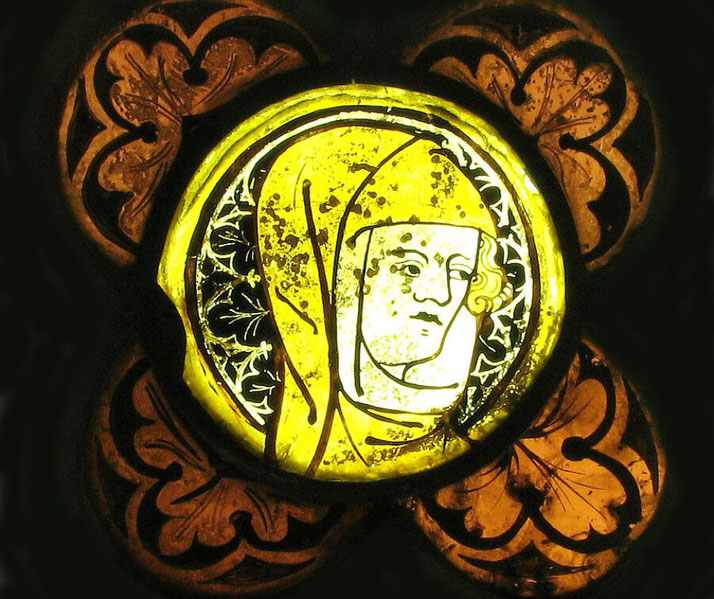Eleanor of Aquitaine: The most powerful woman of the Middle Ages and the wife of two kings

Eleanor of Aquitaine lived at the centre of power in twelfth‑century Europe, and she influenced two kingdoms through marriage and inheritance.
Eleanor’s life as a powerful duchess
She was born around 1122, although some sources suggest 1124, in Poitiers as the eldest daughter of William X, Duke of Aquitaine, who ruled one of the largest and wealthiest duchies in France.
Her mother, Aenor de Châtellerault, came from a noble family that widened the duchy’s political reach.
Eleanor studied Latin and literature, and she acquired musical skill and learned courtly manners.
She understood politics because her father involved her in the administration of his lands, which prepared her for her future role.
William X, Duke of Aquitaine, died on Good Friday, 9 April 1137, during a religious journey to Santiago de Compostela, which left Eleanor as heir to a large duchy in France.
Passion and politics: Her marriage to Louis VII of France
Recognising the value of her inheritance, King Louis VI quickly arranged Eleanor’s marriage to his son Louis, securing Aquitaine’s loyalty to the French crown.
Eleanor took up her duchy in 1137, and she became one of Europe’s most desired brides.
In July, she wed Louis, heir to the French throne, a match that united Aquitaine with France and increased Capetian power.
Louis VI died on 1 August 1137, and Louis VII took the throne. Eleanor joined him on the Second Crusade in 1147 with a royal group that travelled through Constantinople and the Holy Land.
In 1148, she stayed in Antioch with her uncle Raymond of Poitiers, a visit that led to rumours and increased tension between her and Louis.
The marriage produced two daughters but no son, which caused strain because she acted with independence and held political power.
Pope Eugene III cancelled their marriage in March 1152 on the grounds of kinship, and Eleanor regained control of her lands.
Collaboration and conflict: The marriage to Henry II of England
Eleanor married Henry Plantagenet, Count of Anjou and Duke of Normandy, on 18 May 1152, probably in Poitiers, two months after the annulment.
Henry became King Henry II of England in 1154, and Eleanor became Queen of England while keeping her title as Duchess of Aquitaine.
She bore Henry eight children, including Richard the Lionheart and John, both of whom became kings of England.
Eleanor oversaw her own lands, issued charters in her name, and encouraged a courtly culture that praised chivalry and refined poetry.
She combined the wealth of Aquitaine with the authority of the English crown.
Her relationship with Henry worsened as his affairs and limits on her authority caused deep anger.
In 1173, she backed a revolt by her sons Henry the Young King, Richard, and Geoffrey, supported by King Louis VII and several nobles.
The revolt failed, and Henry imprisoned her for nearly sixteen years to weaken her power.
She regained freedom after Henry died in 1189, when Richard I became king, and he freed her.
As regent during Richard’s absence, Eleanor governed England, and she helped raise a ransom of 150,000 marks to free him from captivity in Germany.

Eleanor kept her influence after Richard died in 1199, and she travelled across France to gain support for her youngest son John, whose claim faced rivals.
At about eighty years old, Eleanor made one last major trip in 1200 to escort her granddaughter Blanche of Castile to marry the future King Louis VIII of France.
Her work helped secure John’s rule in England and her lands on the continent during a time of uncertainty.
She spent her final years at the abbey of Fontevraud, where she stepped back from politics, and she retained influence through her children and grandchildren.
Eleanor died on 31 March 1204 at about eighty‑two, and she was buried at Fontevraud Abbey beside Henry II and Richard I.
Her tomb statue at Fontevraud Abbey shows her holding a book, and it shows her role as a supporter of learning and courtly culture.
Her time as duchess and queen made her descendants central to European politics for years, and it changed the course of English and French history.
What do you need help with?
Download ready-to-use digital learning resources
Copyright © History Skills 2014-2025.
Contact via email
With the exception of links to external sites, some historical sources and extracts from specific publications, all content on this website is copyrighted by History Skills. This content may not be copied, republished or redistributed without written permission from the website creator. Please use the Contact page to obtain relevant permission.





